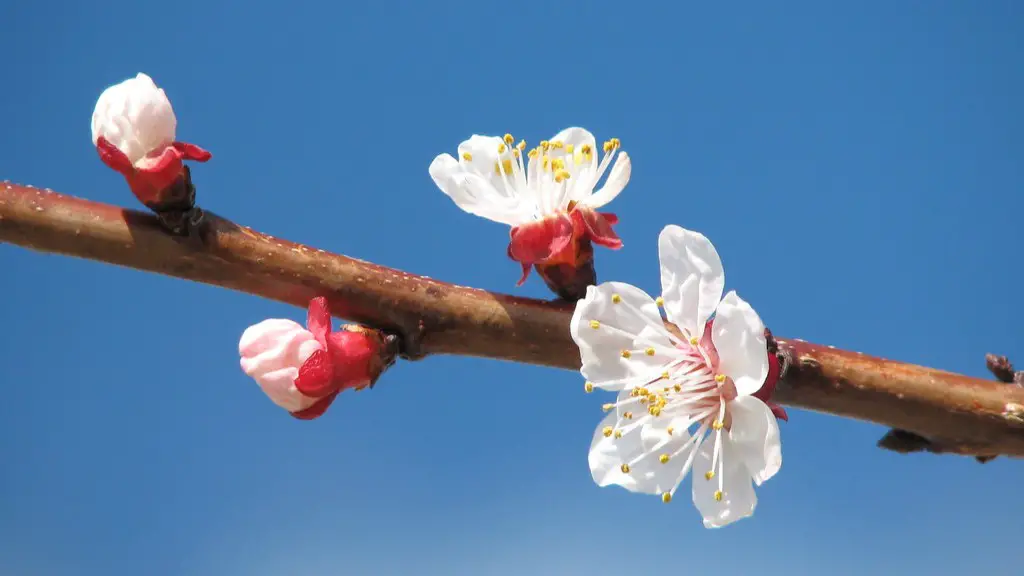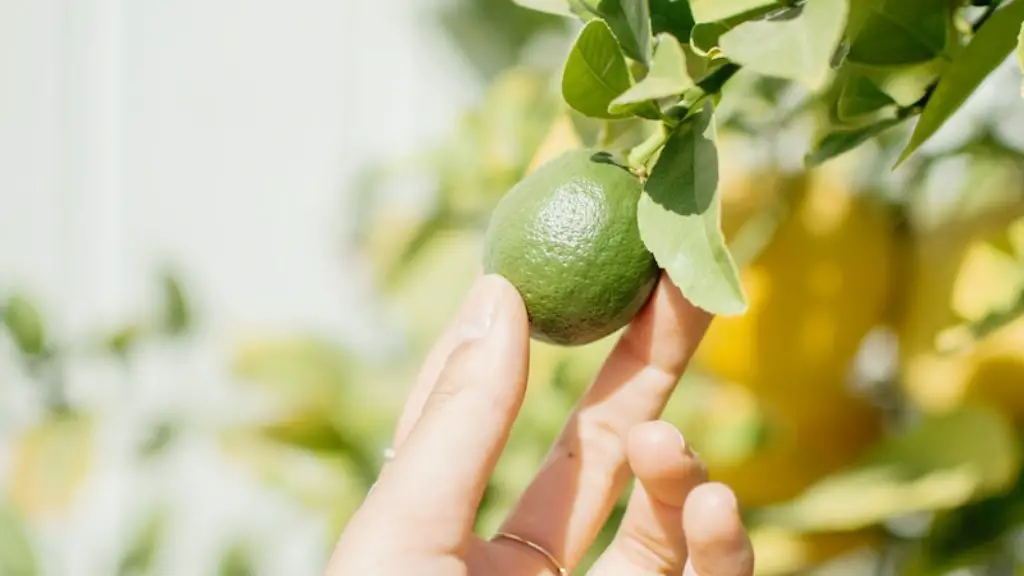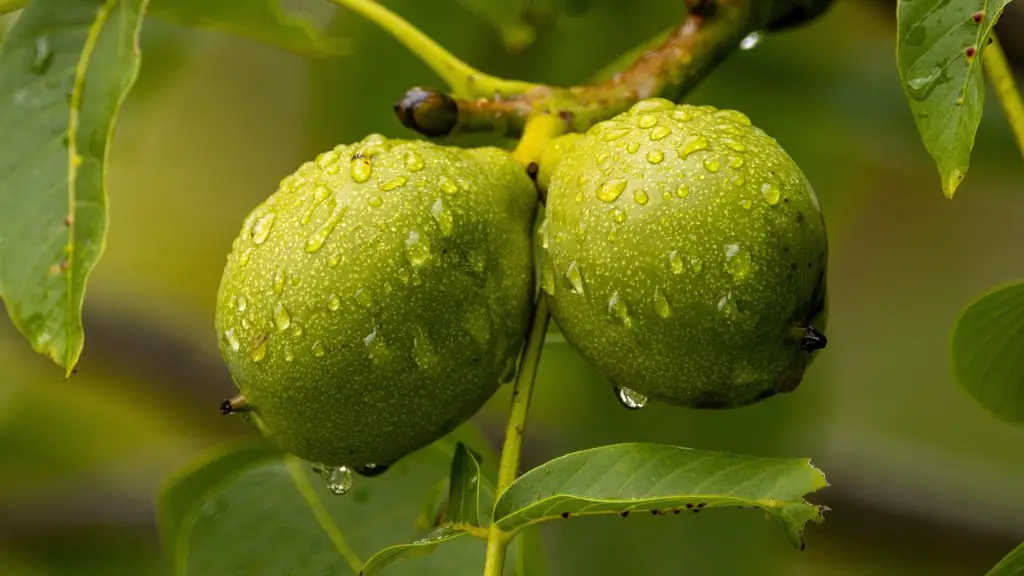The lemon tree, as a Cold Hardy Citrus, is one of the most popular fruit trees you can find in a home garden today. Unfortunately, many people are disappointed and frustrated when they tend a lemon tree for months but don’t get any fruit in return. There are numerous reasons why a lemon tree may not bear fruit and it is important to understand them so that the tree can be better managed for fruit production.
The first and most common reason why a lemon tree does not produce fruit is due to improper fertilizing techniques. Lemons need a specific nutrient balance with nitrogen, phosphorus, and potassium in order to produce fruit. If the tree is not getting the proper amount, then it won’t be able to produce fruit. Additionally, an over-fertilized lemon tree will not produce fruit, so make sure to fertilize in moderation.
Another possibility is a lack of pollination, which is necessary for the lemon tree to produce fruit. If there are no pollinators in the area, then the flowers produced by the tree will not be pollinated and, therefore, no fruit. If there are not enough pollinators, then one can introduce them to the area manually by bringing in bee hives or hand-pollinate the flowers.
A third reason why a lemon tree is not producing fruit is root issues. If a tree is planted in a shallow pot or in soil that is not nutrient-rich and light enough, then its root system will be stunted and won’t be able to access all the nutrients and water it needs. To prevent this from happening, make sure to plant the tree in a wide and roomy pot, using high-quality soil and making sure to give it enough water.
Finally, a lemon tree does not bear fruit if it is planted in a spot that does not receive enough sunlight. The tree needs at least 6-8 hours of sunlight a day in order to produce fruit, so make sure to find a spot in your garden that is sunny and away from too much shade.
Frost Protection
In addition to the above reasons, there may be yet another explanation behind why a lemon tree may not bear fruit – excessive cold. Lemons are tender plants, meaning they are sensitive to cold temperatures and will not produce fruit if exposed to unseasonably cold temperatures. It is important to take precautions like frost protection and watch for any signs of frost damage.
If your lemon tree lives in an area that is prone to frost, it is recommended to cover with a protective material before the frost arrives. A simple bed sheet will do the job, or you can use a tarp. This will ensure that the lemon tree is protected from any frost damage, which can be a possible cause behind it not producing fruit.
It is also a good idea to take preventative measures ahead of time. Such as pruning the lemon tree in late winter and adding organic matter to the soil in late summer. Pruning will help the tree to focus its energy on producing flowers and fruits, while the organic matter will improve soil structure and provide essential nutrients to stimulate new growth.
Finally, if your lemon tree is simply not capable of surviving in your area’s winter climate, then it may be best to move it further south to a milder climate. This will protect it from cold temperatures and help it produce fruit.
Leaf Issues
Another reason why a lemon tree may not produce fruit is due to leaf issues. A tree that is not healthy or not receiving enough nutrients will show signs of this by displaying yellowing and falling leaves. If this is the case, then it is likely that the tree is deficient in essential nutrients, such as potassium or iron, and this is preventing it from producing fruit.
The first step would be to take a soil sample and send it to a lab for analysis. This will tell you what nutrients the soil needs and what amendments you can add to restore balance. Once the perfect nutrient balance has been achieved, the tree should start to recover and be able to produce fruit.
It is important to note that the fertilizing process may take some time to work, so patience is a must. Additionally, if the tree is already severely damaged then there may not be enough time for it to recover and produce fruit. In such cases, it is best to simply go ahead and replace the tree with a new one.
Finally, if the tree is healthy but still not producing fruit, then an insect or pest infestation might be the cause. In this case, it is best to contact a professional to identify the problem and to choose the appropriate pest control or treatment.
Tree Age
The last reason to consider is the age of the tree. If the tree is too young (less than 3 years old) then it may simply not have the energy to flower and fruit. It is expected that lemon trees become mature and start to bear fruit after about 4-5 years. If the tree is younger than this, then it should be given time for it to reach maturity.
Additionally, it is not uncommon for mature lemon trees to experience a “resting period,” or a period of inactivity where it does not produce flowers or fruit. This is usually a natural response from the tree and will typically not last for more than a year or two at the most. If possible, give the tree the time it needs and it should start to produce again in due time.
In conclusion, there may be several possible reasons why a lemon tree may not produce fruit. It could be due to various environmental factors such as improper fertilizing techniques, lack of pollinators, root issues, or frost damage. Or, it could be due to leaf issues, pest infestations, or simply because the tree is too young. So, when it comes to the question of why a lemon tree is not producing fruit, it is best to investigate thoroughly and find out the true cause behind it.
Irrigation & Potting Challenges
Although there is no single cause behind why a lemon tree may not produce fruit, there are a few additional techniques that can be employed in order to increase the chances that the tree will bear fruit. One of them is paying attention to the tree’s water and nutrient needs and making sure to provide the best environment for it.
It is important to give the tree the correct amount of water and to make sure to pot it in the right soil for optimal growth. In terms of water, make sure to irrigate the tree deeply and frequently during the summertime and to water it during prolonged dry periods. When it comes to soil, make sure to use a light and well-draining potting mix that also has some organic matter.
Also, if the tree is already in a pot then it is important to repot it every couple of years in order to refresh the soil and stimulate new growth. When repotting the tree, make sure to use the same type of high-quality soil and to make sure it is several inches wider than the old pot. This will give the roots more room to expand and reach all the nutrients they need.
Finally, when transplanting a new lemon tree, it is important to learn its preferred climate and to make sure to provide it with an environment that meets its needs. Additionally, it is important to make sure to use a high-quality potting mix that is well-draining and is not too dense.
Fruit Harvesting
In addition to trying to stimulate the tree to produce fruit, there is also the consideration of when and how to harvest the fruits. For optimal quality, the fruits should be allowed to remain on the tree until they are ripe. Lemons should be ready for harvest when they are yellow in color and when they feel heavy in the hand.
Harvesting the lemons is relatively straightforward, but it is important to take extra precaution not to damage the tree. Use a pair of pruning shears to cut the stem of the lemon and place it carefully in a basket to avoid bruising and damage.
Although lemons can be harvested when they are still green, they will tend to taste more sour and lack the sweetness of a fully-ripened lemon. So, when the lemons are ready to be harvested, wait until they are properly ripe and harvest them carefully.
Finally, for best results, make sure to pick the fruits regularly. Waiting for them to all ripen before harvesting will cause the fruits to overripen and may even lead to fruit loss. Regularly harvesting the fruits means that the tree will continue to produce fruit throughout the season.



